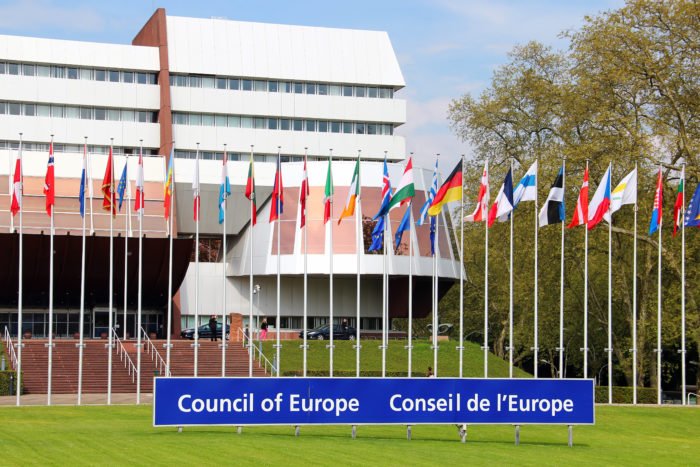Turkey tops the list of 47 Council of Europe (CoE) member states that received the most judgments from the European Court of Human Rights (ECtHR) in cases concerning a violation of freedom of expression, with 356 out of a total of 845 cases, according to a report published by the Expression Interrupted project.
Examining the judgments delivered by the ECtHR from 1959 to 2019, the report found that Russia is a distant runner-up with 72 judgments and that France comes third with 38 cases in which the court found a violation of freedom of expression under Article 10 of the European Convention on Human Rights.
Turkey’s ECtHR record is abysmal in general as well. Between 1959 and 2019, 3,645 of the 22,535 judgments delivered by the court were against Turkey, making it the country against which the ECtHR has delivered the most judgments.
The report, titled “Freedom of Expression and Turkey: Implementation of ECtHR Judgments,” examines the ECtHR judgments finding freedom of expression violations in applications filed against Turkey in the recent past and Turkey’s track record in implementing these judgments. It focuses on Articles 299, 301, 220/6, 220/7 and 314 of the Turkish Penal Code (TCK) and Articles 6/2 and 7/2 of the Anti-Terrorism Act (TMK), which are most frequently used in convictions and sentencing and most commonly cited in international monitoring reports focusing on restrictions on freedom of expression in Turkey.
According to the latest figures from the Committee of Ministers of the CoE, the organization’s decision-making body, there were 5,231 cases pending before the committee as of 2019, waiting to be implemented by state parties. A total of 1,663 of these cases involve Russia. With 689 cases before the Committee of Ministers, Turkey holds second place in terms of non-implementation of ECtHR decisions. Ukraine follows Turkey with 591 cases.
The report states that based on data from Turkey’s Ministry of Justice, almost one-fifth of 246,426 persons imprisoned in Turkey (48,924) are either charged with or convicted of terror crimes. The report cites the conclusion of a Human Rights Watch study that says many terrorism trials in Turkey “lack compelling evidence of criminal activity or acts that would reasonably be deemed terrorism.”
Many among these people are journalists. Turkey has for many years been one of the world’s biggest jailers of journalists. It is ranked 154th among 180 countries in the Reporters Without Borders’ World Press Freedom Index 2020. According to the Council of Europe’s Platform to Promote the Protection of Journalism and Safety of Journalists, 148 of the 849 alerts concerning “the severest violations to media freedom including physical assault, assassination, intimidation, impunity in the crimes against the journalists, and implementation of overly harsh penal laws in order to protect the state authorities from a level of criticism that is needed to be expected in democracies,” which have been recorded regarding all 47 member states of the Council of Europe since the platform’s establishment in April 2015, concern Turkey, the report says.
According to data from the platform, Turkey is the biggest jailer of journalists among the 47 member states of the CoE with 95 journalists in prison. The vast majority of these journalists are held in pre-trial detention or serving sentences for their journalistic activities on conviction in politically motivated trials on unsubstantiated charges of links to terrorist organizations or a 2016 coup attempt.
In response to a parliamentary motion in 2018, the Turkish government disclosed that a total of 116 media outlets — six news agencies, 18 television stations, 22 radio stations, 50 newspapers and 20 magazines — were shut down by emergency decrees (KHKs) issued during a state of emergency declared after the failed coup. In 2019, 61,019 domains and websites were blocked in Turkey, including 5,599 URLs containing news items, bringing the total number of websites and domains blocked in Turkey since 2014 to 408,494.
According to Interior Ministry figures, 14,186 social media accounts were investigated and legal action was taken against 6,743 individuals identified in connection with these accounts from January 1, 2020 to August 14, 2020 for “spreading propaganda for a terrorist organization, incitement to hatred and enmity, insulting a segment of the population, spreading fear and panic among the population or sharing provocative and misleading posts based on false documents.”
The report concludes, based on its findings, that “Turkey will be unable to show progress in the field of freedom of expression and media freedom unless judicial independence is fully established, which is in turn conditional upon emergence of political will to that effect.”















